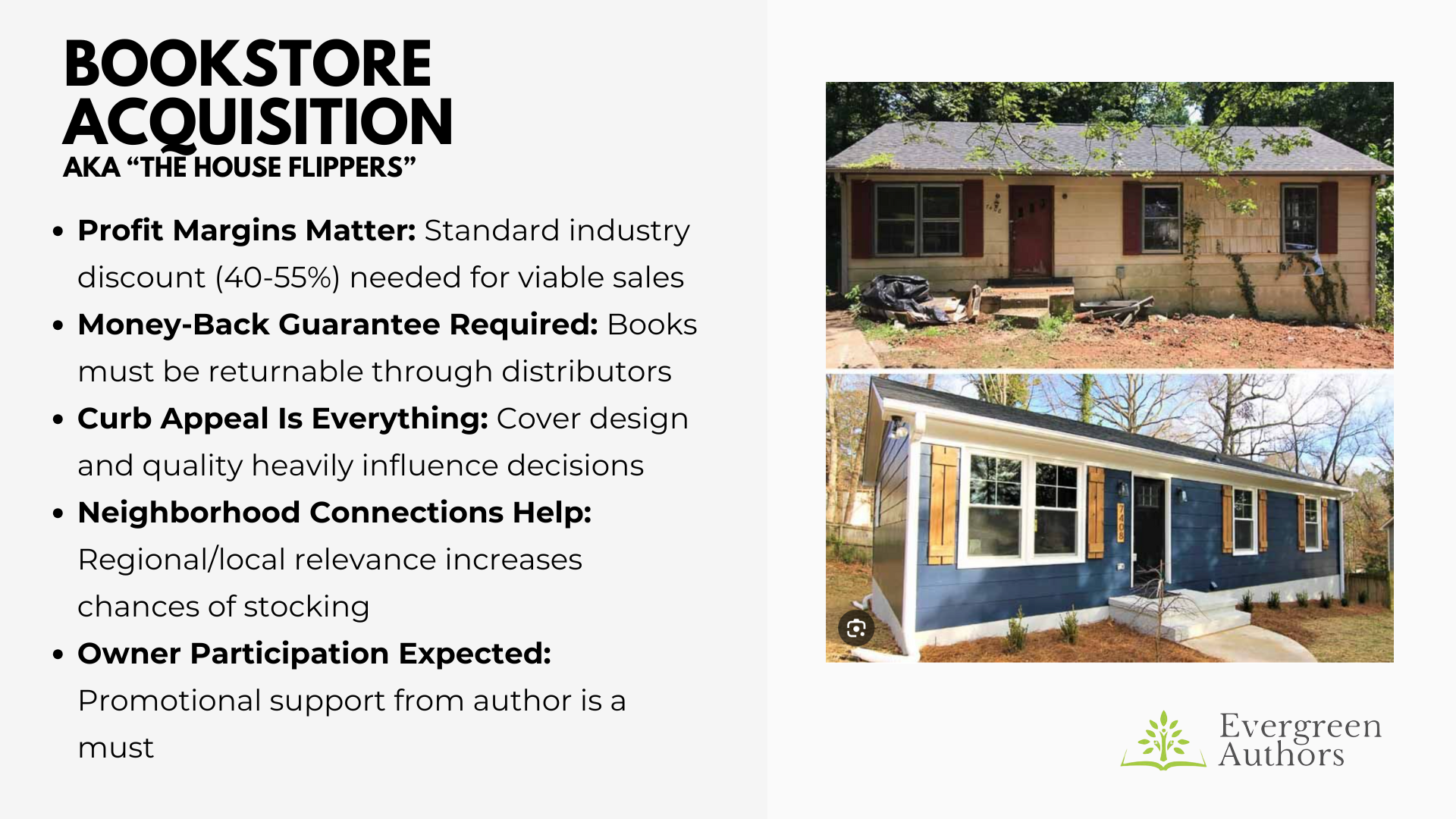2. How Bookstores Acquire Books
Bookstores are like house flippers looking for properties with immediate appeal and profit potential. They're not necessarily thinking long-term—they need books that will sell quickly and deliver returns.
Here's what these buyers care about:
Profit Margins Matter - Bookstores expect a standard industry discount of 40-55%. This is like a house flipper calculating their minimum profit margin before considering a property. If they can't make enough on the sale after renovations, they simply won't buy it. Your book needs to offer them adequate financial returns to justify shelf space.
Money-Back Guarantee Required - Books must be returnable through distributors. Think of this as a house flipper insisting on inspection contingencies—if serious problems emerge, they need an exit strategy. The ability to return unsold copies is often non-negotiable, especially for larger bookstores. Even indie bookstores consider returnability a factor, though they're less likely to exercise this option than chain stores.
Curb Appeal Is Everything - Cover design and quality heavily influence decisions. Just as house flippers know buyers make snap judgments based on a home's exterior, bookstores know customers judge books by their covers. The visual appeal and professional presentation of your book can make or break a stocking decision—beautiful, genre-appropriate covers that stand out while fitting in are essential.
Neighborhood Connections Help - Books with regional or local relevance have better chances of being stocked. It's like a house flipper knowing that a property near good schools will sell faster. If your book has connections to the store's community—whether through setting, subject matter, or your own local ties—bookstores are more likely to give it shelf space.
Owner Participation Expected - Bookstores value promotional support from authors. Think of this as a house flipper who expects the previous owner to help market the renovated property. Bookstores want to know you're committed to driving traffic and sales through events, social media, and other promotional efforts. Your marketing support can be the deciding factor in whether they take a chance on your book.
Now that you understand what these two types of "homebuyers" are looking for, you're ready to stage your book home for success.
Understanding these acquisition differences is like knowing whether you're selling to a young family looking for their forever home or to a flipper looking for quick ROI—it completely changes your approach.
As we continue, we’ll show you specific staging techniques for each market.
We'll cover everything from ensuring your property listing—your metadata—highlights all your book's best features to getting those critical home inspection reports—professional reviews.
These strategies will dramatically increase your chances of getting your literary property placed in the neighborhoods where it belongs.
The path to these valuable real estate markets isn't as mysterious or exclusive as many authors believe. You don't need insider connections or a traditional publishing pedigree.
With the right approach and preparation—just like a savvy home seller—you can navigate these channels successfully, expanding your readership and establishing your work in these trusted, curated spaces.
Let's move on to how you can prepare your book for its perfect showing!
